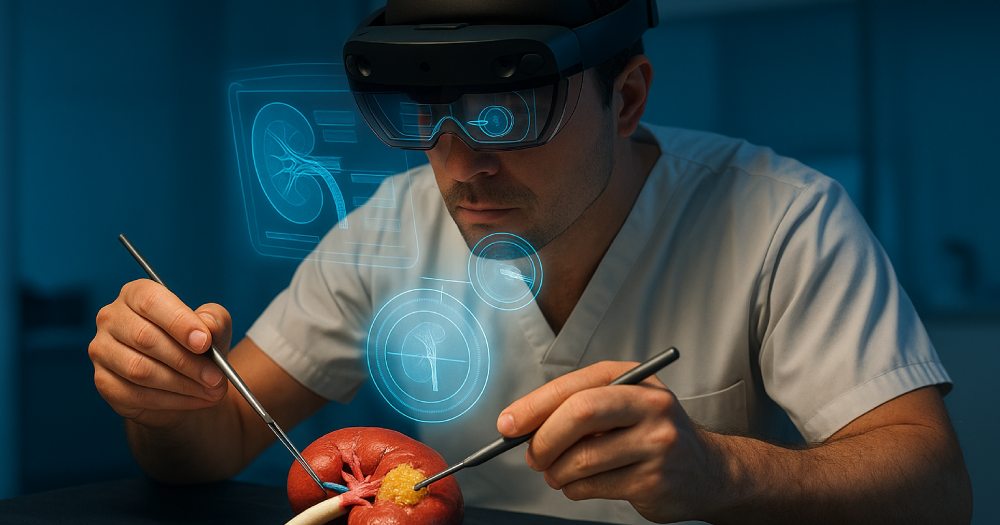Mount Sinai researchers unveil a promising AI-powered surgical education model

Picture this: you're learning a high-stakes surgery, but there's no professor hovering over your shoulder. No raised eyebrows. No tense silences. Just you, a headset, and an AI that knows exactly what you need to do next. That's the reality Mount Sinai researchers just tested - and every single trainee aced the task.
"For the first time," said Dr. Nelson Stone, "we created an AI model linked to an extended-reality headset to prove that a critical step in a kidney cancer procedure could be done with 99.9 percent accuracy."
Translation: surgical training might never look the same again.
How does it work?
Forget the old "watch one, do one, teach one" model. This is "strap in and let the AI guide you."
- The system, called ESIST (educational system for instructionless surgical training), blends deep learning with extended reality.
- A custom headset beams surgical steps and video feeds directly into the trainee's view - no need to glance away from the work.
- A first-person camera watches everything you do, flagging errors instantly and projecting real-time corrections.
For the trial, trainees tackled a simulated partial nephrectomy - removing part of a kidney and clamping the renal artery. The "patient" was a phantom kidney: a 3D-printed replica from CT scans, filled with polymer to mimic the feel of tissue. Trainees worked freehand, headset whispering instructions, AI correcting missteps. No human instructor. No safety net. And it worked.
Why does it matter?
The current system for training surgeons is expensive, inconsistent, and bottlenecked by the availability of senior physicians. This tech flips the equation:
- Training can happen anywhere, not just in an OR.
- Skills are standardized, not dependent on which mentor you get.
- Costs go down while safety goes up.
From a patient's perspective, that last point is everything.
"We hope this study will provide reassurance... while reducing surgical errors," said Dr. Stone.
And for trainees, it's like having a patient simulator that never tires, never rushes you, and never misses a mistake.
The context
The medical world is grappling with a shortage of surgical trainers just as new techniques and devices keep hitting the field. Time-pressed attending physicians can't teach every resident every new skill. AI systems like ESIST aren't here to replace the human touch - but they can pick up the slack, and do it with machine precision.
The Mount Sinai team is already thinking bigger. Next on the list: full synthetic cadavers, guided by AI, capable of teaching entire operations from first incision to final suture. Their study's 100 percent trainee approval rating suggests they're onto something.
As Dr. Stone put it, "AI systems could indeed play an important complementary role... leading to significant cost savings and improved patient outcomes."
💡Did you know?
You can take your DHArab experience to the next level with our Premium Membership.👉 Click here to learn more
🛠️Featured tool
 Easy-Peasy
Easy-Peasy
An all-in-one AI tool offering the ability to build no-code AI Bots, create articles & social media posts, convert text into natural speech in 40+ languages, create and edit images, generate videos, and more.
👉 Click here to learn more


